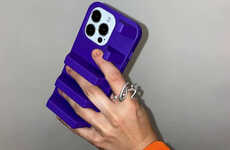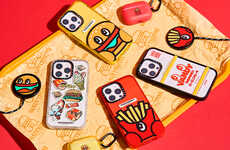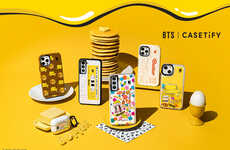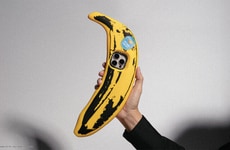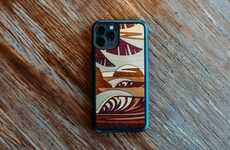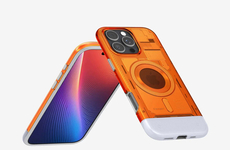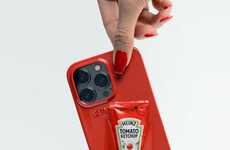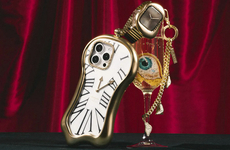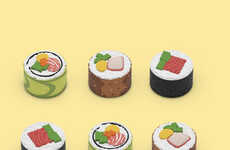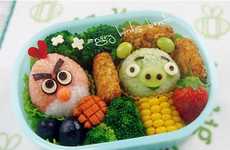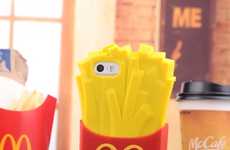
Suetake Sample Cases are Made from Hyperreal Food Sculptures
Katie Jensen — August 11, 2011 — Art & Design
References: allthatisapple
Japanese plastic food model manufacturer Suetake Sample have recently applied their replication skills to the art of iPhone skins. People buy iPhone cases to protect their beloved handheld toys from scratches, drops, and spills, but what if they purchased them after having a serious case of the noms?
Suetake Sample addresses this question, as the trinkets on these cases aren’t your grandma’s waxy plastic fruit -- these are extremely intricate, though inedible, pieces of food sculpture. Training as a food model maker can take up to 2 full years, which is as long as it would take to gain accredation as a real chef.
The skins, handcrafted into 3D replicates of sushi, eel, and rice, retail from between 2,000-4,000 JPY ($26-56 USD). The company ships the cases all over the world from their factory in Yokohama, Japan.
Suetake Sample addresses this question, as the trinkets on these cases aren’t your grandma’s waxy plastic fruit -- these are extremely intricate, though inedible, pieces of food sculpture. Training as a food model maker can take up to 2 full years, which is as long as it would take to gain accredation as a real chef.
The skins, handcrafted into 3D replicates of sushi, eel, and rice, retail from between 2,000-4,000 JPY ($26-56 USD). The company ships the cases all over the world from their factory in Yokohama, Japan.
Trend Themes
1. Hyperreal Food Replication - Developing technology that allows for the replication of hyperrealistic designs could have promising applications in the food industry, especially for reducing food waste through creating visually appealing yet inedible sculptures that draw attention to the food being showcased.
2. Edible-inspired Products - Edible-inspired phone skins are just one example of how companies can expand into new markets by creatively adapting existing products in ways that satisfy consumers' growing desire for personalized, unconventional and aesthetically-driven items.
3. Handcrafted Precision - The trend towards customization and uniqueness is leading more companies to employ traditional craftsmanship techniques to create highly sophisticated, made-to-order products that appeal to consumers seeking one-of-a-kind items.
Industry Implications
1. Phone Accessories - This trend could inspire companies in the phone accessories industry to explore the incorporation of visually striking design elements, such as hyperreal food replication, into their products in order to attract a wider audience.
2. Food Model Manufacturing - As opposed to focusing solely on the traditional use of their skills to create inedible food models, some food model manufacturers may identify disruptive innovation opportunities in exploring how their replication technology could be used across other industries, such as healthcare or architecture.
3. Artisanal Goods - Companies producing artisanal goods can leverage their handcrafted approach to create unique, personalized and visually appealing products, such as the Suetake Sample iphone cases, that appeal to consumers seeking something different and bespoke.
5.3
Score
Popularity
Activity
Freshness

